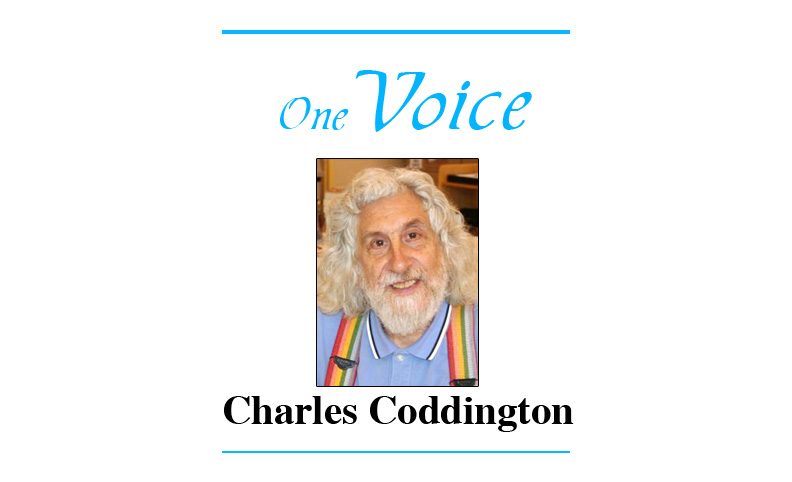
I have been following with a great deal of interest publisher Crane’s “clear and concise” section on page 2 in editorials since he began it. As a student of the “Muvver Tongue” (as they say in the U.K.), I had hoped to find new insights in English usage. Although I agree with some of his examples, I have to disagree with others.
Therefore, I decided to start my own “clear and concise” feature on this page at random times. I’ve been a professional writer since 1997, first with TONIT (that other newspaper in town) and then with this publication. In between, which I have mentioned in a previous essay, I published 11 novels. I’d like to think that I have acquired a modicum of expertise in the use, and misuse, of the English language.
First, dear reader, have you noticed in print and media news reports the expression “senseless killings” (and similar expressions) in the accounts of the murders of unarmed persons, innocent bystanders, and children? It is obviously an emotion-laden use of words, intended to evoke a particular reaction in the readership. But the use (or misuse) of such an expression implies that there is such a thing as “sensible killings.” Can you think of an example of a sensible killing? Perhaps you can in the defense against a home invasion or the execution of a condemned person, but you won’t find that usage in newspapers, or on the media, because it does not evoke the appropriate reaction the account wants to make.
Concerning inappropriateness, we now segue to “malapropism.” This word derives from Mrs. Malaprop, a character in the 1775 play The Rivals, penned by the British playwright, R.D. Sheridan. Mrs. Malaprop continually and erroneously uses words which sounded like other words, to comic effect. Some examples I’ve come across are “polo bear” and “neon stockings.” I am reminded that the character of Mrs. Slocombe in the 1970s British sit-com, Are You Being Served?, was a past mistress of malapropism; whenever she voiced an opinion, she would conclude with the words, “And I am unanimous in this!” She meant, of course, “adamant.” My personal favorite malapropism is “masticate/masturbate.”
In this series of essays, I intend to highlight the most useless expression ever to invade English. The first one then is “you know,” as in “I have to think of something, you know, interesting to write about.” How it got into the language in the first place, I surmise that it was part of the “Valley Girl” speech pattern of the 1960’s, meant as a pause while the speaker searched for something appropriate to complete her thought and took off from there into the general population. Don’t you wish you could say, “No, I don’t know. Why don’t you explain it to me?” That will get you either a curt dismissal or a punch in the mouth, don’t you know?
Then there is the mix-up concerning its and it’s. I’ve seen that glaring error more times than I care to count. Its is a possessive pronoun, while it’s is a contraction of it is. A word to the wise, if you please.
The rest of this essay spotlights my chief pet peeve in the use of English, the misuse of the word only. 99.99% of English speakers/writers are guilty of this sin; it even occurs in this publication, (with the notable exception of this writer’s illustrious contributions).
Only is a special-use adverb. Not only does it modify verbs, other adverbs, and adjectives, it modifies noun phrases, prepositional phrases, and dependent clauses. As such, it should be placed near that part of writing which it is modifying, not always in front of a verb.
My favorite example is the simple sentence, John loves Mary. It tells us nothing as is, and John only loves Mary makes it worse by suggesting that John loves only secretly and never shows his love openly. In this instance, only should not be used at all. So, let’s put only somewhere else, shall we?
• Only John loves Mary. Poor Mary, she is stuck with John because she believes that every other man thinks she’s ugly.
• John loves only Mary. Poor Mary, she is stuck with John because she believes he is a raving misanthrope.
• John loves Mary only on alternate weeks. Poor Mary, she is stuck with John because she believes he is a notorious womanizer.
• John loves Mary only because she speaks fluent Urdu. Poor Mary, she is stuck with John because she believes he has a race problem.
Misusing only is not only incorrect but confusing. The reader deserves to know just exactly the point the writer is trying to make. The above examples demonstrate that only can alter the meaning of a sentence, depending upon where it is placed. Correct usage makes the writing clear and concise.
Just, you know, a thought.

